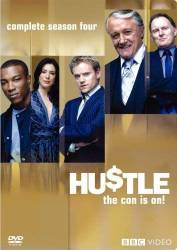
Tabula Rasa - S1-E3
Deliberate mistake: As Ray drives the pickup truck, an oncoming vehicle beeps and the marshal heads behind Ray's pickup. In the shot through the cab's rear window facing the bed, as the marshal pulls behind, the bed's side wall interior is seen (note the metal loop tie down on top) and the entire tailgate is gone; yet the tailgate is intact later, when the pickup flips over. The tailgate was removed for the shot to allow visibility of the marshal's vehicle.

Deliberate mistake: In the episode where Mary-Alice Young's house is open for buyer's inspection, the phone number on the "For Sale" sign has been digitally blurred.

Deliberate mistake: When a patient who is given CPR is seen in the shot, the person giving the CPR does so with bent arms (the correct way to do it is with straight arms). This is deliberate, as straight-arm CPR puts in an amount of strength that frequently breaks ribs. Many films do CPR with bent arms rather than straight to avoid harming the actor.

Deliberate mistake: As the Wraith "stun bomb" activates at the SGC and everyone falls to the ground, it is visible how everyone uses their arms to dampen the fall.

Deliberate mistake: Unavoidable, but still noteworthy: At the beginning of season 2, all the story lines pick up where they left of from at the end of season one; indicating that not much time has elapsed. In spite of this, most of the cast have different haircuts, Dana has grown out her fringe, and Tina suddenly has a baby bump.

Deliberate mistake: Though the series title is technically inaccurate, since in New York CSIs are called CSUs (crime scene units), it's called "CSI: NY" to tie it in as existing in the same universe as its sister series "CSI: Crime Scene Investigation" and "CSI: Miami."

Deliberate mistake: When Sam first meets Mickey (who is posing as a bank robber), Mickey says he needs Sam to state that he needs Mickey's help in robbing a bank, so if Sam turns out to be an undercover cop, Mickey can plead entrapment. This is a classic error. Entrapment only exists where a cop actively persuades a criminal to do something he otherwise wouldn't have done - which is not the case here. If Mickey as a con artist knows this (which is likely), it's a deliberate mistake, otherwise it's a factual error. (00:30:09)